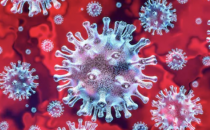Psychological Impact COVID-19
We are all experiencing the psychological impact of COVID-19 during this uncertain time locally and globally. Individually, people are experiencing an emotional impact based on the life changes occurring around them. We can remain socially united as a community by supporting one another during this global crisis. Common Terms: Social Isolation, Self-Isolation, Social Distancing and […]



 We have put together a list of some tips to manage your mental health during COVID 19. Current events can add unnecessary stress to our lives, especially if you are someone that worries about the status of the world in general. News and media meant to provide information can lead to excessive worry and fear. An abundance of social media posts from friends and family can add to the stress that may overwhelm and impact our emotional health.
We have put together a list of some tips to manage your mental health during COVID 19. Current events can add unnecessary stress to our lives, especially if you are someone that worries about the status of the world in general. News and media meant to provide information can lead to excessive worry and fear. An abundance of social media posts from friends and family can add to the stress that may overwhelm and impact our emotional health.